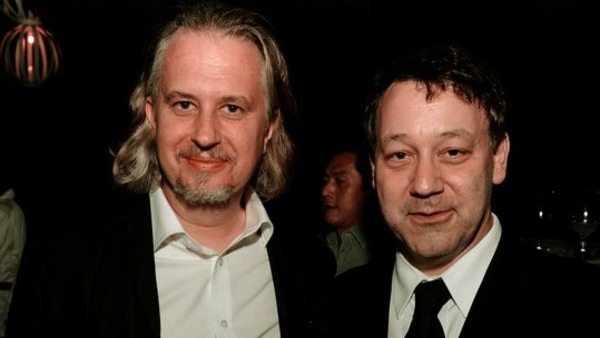 Music composer and producer Anton Sanko (pictured above Left with director/producer Sam Raimi) was recently nominated for an Emmy Award for his work in the Lifetime Original Movie “Ring of Fire” in the category of Outstanding Music Composition For A Miniseries, Movie Or A Special (Original Dramatic Score). “Ring of Fire” stars Jewel as legendary country artist June Carter Cash. Prior his Emmy nomination Sanko scored the Sam Raimi produced horror/suspense film The Possession starring Jeffrey Dean Morgan as well as critically acclaimed film Rabbit Hole starring Nicole Kidman and Aaron Eckhart.
Music composer and producer Anton Sanko (pictured above Left with director/producer Sam Raimi) was recently nominated for an Emmy Award for his work in the Lifetime Original Movie “Ring of Fire” in the category of Outstanding Music Composition For A Miniseries, Movie Or A Special (Original Dramatic Score). “Ring of Fire” stars Jewel as legendary country artist June Carter Cash. Prior his Emmy nomination Sanko scored the Sam Raimi produced horror/suspense film The Possession starring Jeffrey Dean Morgan as well as critically acclaimed film Rabbit Hole starring Nicole Kidman and Aaron Eckhart.
Anton also has a number of television credits under his belt. Chief among them are the epic seven-part global programming television event “Great Migrations” for National Geographic, the acclaimed HBO series “Big Love” starring Bill Paxton, and Sanko is currently writing the original music for the upcoming political comedy series “Alpha House” from Amazon Studios (watch the pilot here) which stars John Goodman.
A few months back, we spoke with a young film composer named Joachim Horsley who composed the score to the irreverent apocalyptic comedy Rapture-palooza starring Craig Robinson and Anna Kendrick. Both Horsley and Sanko have worked on a number of above mentioned titles and continue to collaborate regularly.
Sanko recently finished scoring the upcoming horror thriller Jessabelle starring Justified‘s Joelle Carter and Scott Pilgrim‘s Mark Webber. GoSeeTalk got to chat with Anton to discuss his work on the Carter/Cash biopic as well as other high points of his career.
————————————————————————————————————————————
– Anton, let’s get started by telling us about your background in music, when you started learning and what instruments/musicians inspired you to want to learn/play and ultimately compose.
I was fortunate enough to have been born into a very artistic family – my father was an architect and my mom a painter. As a kid, I had always wanted to pursue the visual arts. I have a younger brother, who, it
became apparent at an early age, was a child prodigy. I was (and remain) in awe of his talent and felt I needed an alternate form of expression.
I started taking free guitar lessons offered by my school after classes. I had an aptitude and a love for it and quickly went from there to studying with a former student of Segovia’s. I thought for years that I would become a classical guitarist, but my love for sound got me interested in electronic and orchestral music. Somewhere along the line I started studying piano as well (with a wonderful teacher named Larry Karush, who at the time was a member of the Steve Reich ensemble).
– Your resume is pretty evenly split between film and TV work. What’s the process developing a theme for television, one that has to shift and evolve over a season(s) and how it’s different scoring a feature, one with a set runtime? Do you see it as two different processes?<
The process is similar in that I am trying to help communicate a story using music. I enjoy the opportunity that the long form storytelling of TV offers you to explore a theme in a multitude of settings. In film, you are sometimes required to be more concise with the writing. Of course, this is not carved in stone.
– What makes you take a project? Is is the talent, the story, the director or just a chance to try something new?
It could be any of the above or all three. I’m always excited to try things musically that I haven’t before, and if the story is strong and well executed, finding the right tone is easy.
– You share credits on more than a few titles with Joachim Horsley including the upcoming Jessabelle. He and I have talked about the few things he composed for but he also orchestrates and conducts the themes you create. Tell us about working with him, where your job stops, his starts and any creative give and take you two have while working together.
I met Joachim years ago at Sundance when we were both based in New York. I really liked his attitude and sense of humor – I had no idea at the time he would eventually become such an important collaborator! We have worked together now for quite a while and have developed a shorthand.
Joachim’s role varies depending on the scope of the project. If it’s on a larger score, I’d be speaking with him as I am writing, trying to determine the number of players required, where we might record and how many days we’d need. As sketches are approved, I’ll send him my mockups and work files so he can begin working as soon as possible so we don’t get bogged down at the end. My mockups are generally very complete, but Joachim is fantastic at achieving the sound I hear in my head with the instruments available to us.
Once he’s had a chance to orchestrate, I go over every note and phrase with him in detail. This review process alone usually takes about two days. I find it is time well spent as it prevents any confusion on the recording stage and we can get great performances quickly.
I really prefer to be in the control room during the recording so in addition to performance, I can focus on any technical issues that sometimes can occur during a take. Having Joachim in the room conducting gives me the comfort to do this.
– Congratulations on you Emmy nomination for ‘Ring of Fire’. Now this Johnny Cash/June Carter TV bio pic, which tells the story of their relationship from June’s point of view, focuses on very important and iconic musicians. What were you looking to accomplish with your score and did you have to recreate any of Johnny or June’s famous source music?
The onscreen source music was in place before I came on to the project, and in this case helped inspire the sound of the score. In addition to the emotional support I was trying to supply, I wanted the score to blend seamlessly with the onscreen performances. Locking myself into the instrumentation and harmonic constructs of the music they were creating made me go in places I wouldn’t have expected for this score.
– Johnny and June’s music is quintessentially country but what kind of musical style do you lean toward and does personal preference factor into your decision to take a project?
I love a great theme – especially when it has some hidden twists in the harmony. John Barry was a master of this type of writing. I am a fan of several contemporary eastern European composers like Arvo Part or Henryk Gorecki, who are masters of simplicity and clarity. I also really enjoy music that can be rhythmically challenging and driving, like Glass or Reich.
I very rarely get to explore all these ideas in one film score, but if I can focus on just one of these aspects, or find some other way into the score that intrigues me I’ll be very happy!
– Music can be influential or inspiring but a good musician knows his/her place in the overall story being told. So what is is about a show or film that tells you, “this might be better without music”? Or on the flip side, how do you decide that the only way to really sell this scene is with music?
I am not the only one making those decisions, as it’s a collaborative process with the director, and many times the producer(s) and editors all having critical input. My advantage is, in coming in at the tail end of the process, I can view the film with fresh eyes and ears and have an innate sense of where cues should or shouldn’t be. It’s an instinctual thing that develops with experience. I often find myself arguing for less music, as I find most films these days over-scored. I like the music to have a specific function and impact which is difficult to achieve if it’s constantly playing – it just becomes background noise.
– What’s the schedule like for a TV show and how quick is the turn around? Also I recently saw the pilot for “Alpha House” so can you tell us if that’s moving forward and if you’ll be working on more episodes (or other projects) for Amazon?
The turn around for most TV is usually pretty quick. A few days or so from start to finish. It’s not always like that – when I worked on Big Love, the show’s creators were attuned to the creative process and I often had a week to ten days per episode. But to answer the last part of your question, yes, I am moving ahead with Alpha House and am very excited about it!
– Of the many projects you’ve scored which do you feel was the toughest but most rewarding and why? Also which project did you feel you learned the most about composing and/or which one really got you out of your comfort zone?
The most difficult film I ever scored was Rabbit Hole. It was challenging to walk the fine line dictated by the original play
by David Lindsay-Abaire. The goal was not to be melancholy working within this incredibly devastating plot. Everything about the film was so incredibly well done – I wanted to be sure the music was on the same level. I am incredibly proud of the result.
I learned a lot from working on Big Love. It was a series that had high production values and high expectations from the music. I was following in the footsteps of two very well respected composers and had to generate a large amount of music fairly quickly. Doing all that and succeeding really elevated my confidence and skill level.
————————————————————————————————————————————
If you missed it on Lifetime, here’s a clip from Ring of Fire…
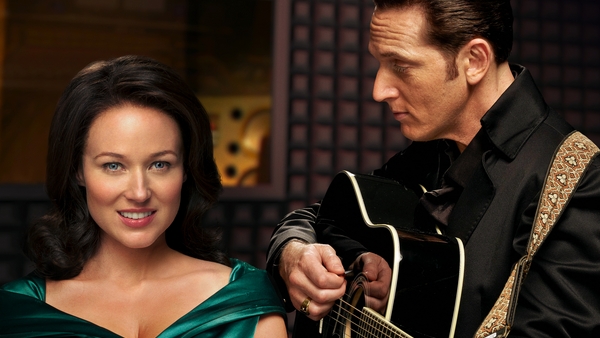
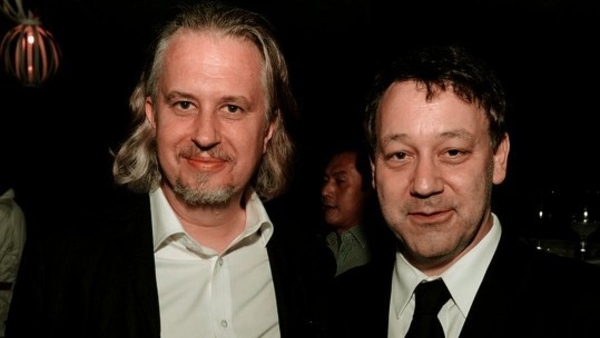
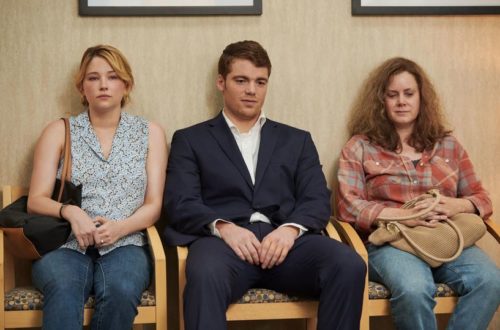
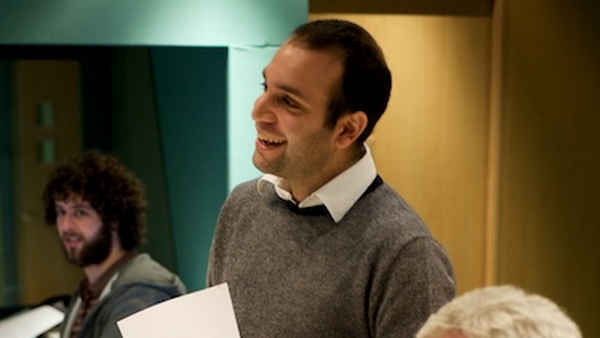
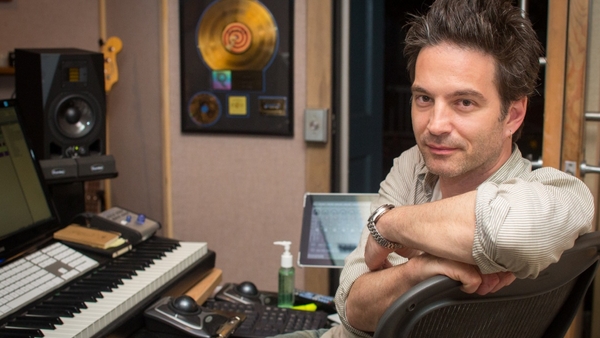
2 Comments
L.A.B.
A very talented guy…. love his projects and looking forward to many more
RidgeRacer4
You said it. Really liked his work on Rabbit Hole. Thanks for the comment and welcome to G-S-T!